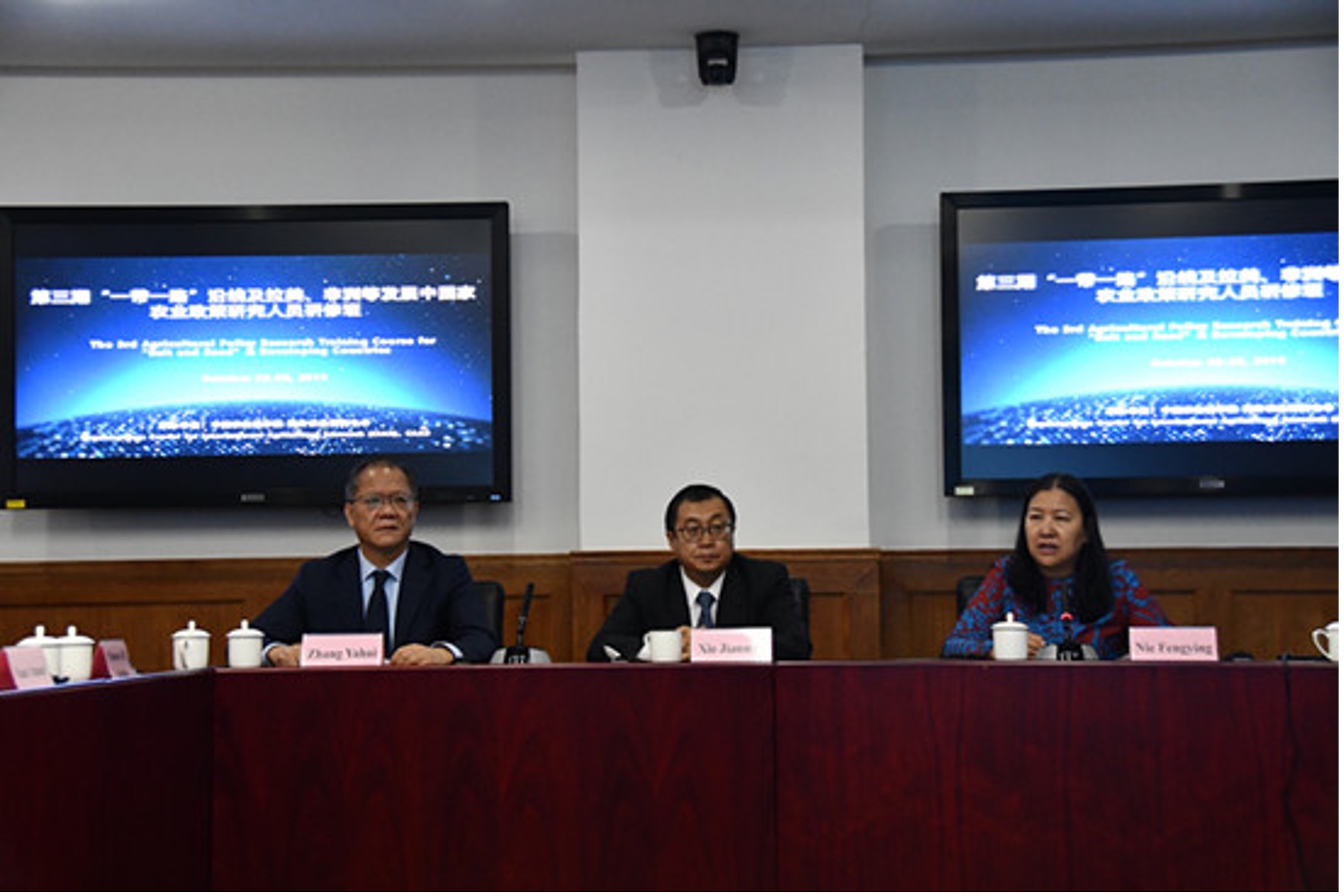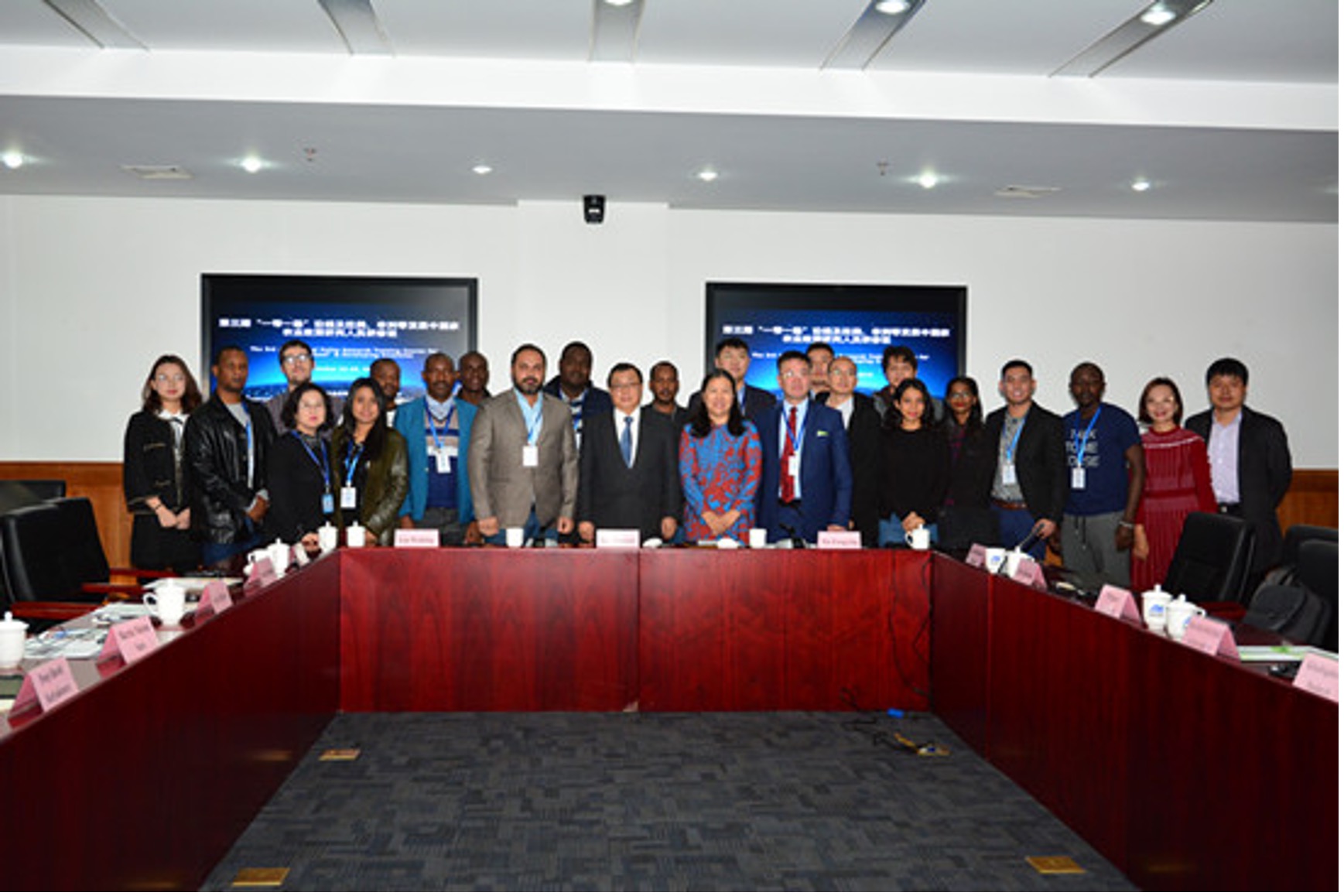The Third Training Class for Agricultural Policy Researchers From Developing Countries Along the “One Belt and One Road” and in Latin America and Africa Was Successfully Held in Beijing
On October 21-26, the third training class for agricultural policy researchers from developing countries along the "One Belt and One Road" and in Latin America and Africa was successfully held at the Center for International Agricultural Research of the Chinese Academy of Agricultural Sciences. First-level inspection by the International Cooperation Department of the Ministry of Agriculture and Rural Affairs Member Xie Jianmin was invited to attend the opening ceremony and give lectures. Zhang Yahui, Director of the Department of International Cooperation of CAAS, attended the opening ceremony and delivered a welcome speech. Researcher Nie Fengying, executive deputy director of Agriculture Information Institute and Deputy Director of the Center for International Agricultural Research of CAAS, presided over the meeting.
Xie Jianmin introduced in detail the basic principles, implementation results and future work plans of my country in the "Belt and Road" agricultural cooperation process during the opening lecture. He pointed out that China is willing to assume more responsibilities and obligations within its capacity, share China's experience with developing countries along the "Belt and Road" and Latin America, Africa, and contribute to global food security and agricultural sustainability in the construction of the international governance system. make greater contributions to development.
Experts such as Liu Wubing, Director of the Regional Trade Department of the Agricultural Trade Promotion Center of the Ministry of Agriculture and Rural Affairs, Zhu Zengyong, an associate researcher at Agriculture Information Institute of the CAAS, and Apurv Maru, a visiting researcher, were also invited to give lectures to the students. Topics include agricultural product trade and the "One Belt and One Road" initiative, and the Chinese hog farming. Development status and trends, China's experience and inspiration in poverty reduction, etc. The trainees had in-depth exchanges on the training topics and conducted round-table discussions on their country's agricultural development and investment needs. The atmosphere was warm and the students responded strongly.
In order to enhance the training effect, this training class also organized students to visit the National Precision Agriculture Research Demonstration Base and the country's leading plant factory for field visits and learn about the development and popularization of China's precision agriculture scientific research technology.
A total of 21 agricultural policy researchers and international students from 14 countries including Pakistan, Sudan, Brondi, Ghana, Kenya, Ecuador, Argentina, Indonesia, Cambodia, Fiji, Togo, Myanmar, Tanzania, and Mongolia participated in the training class.






